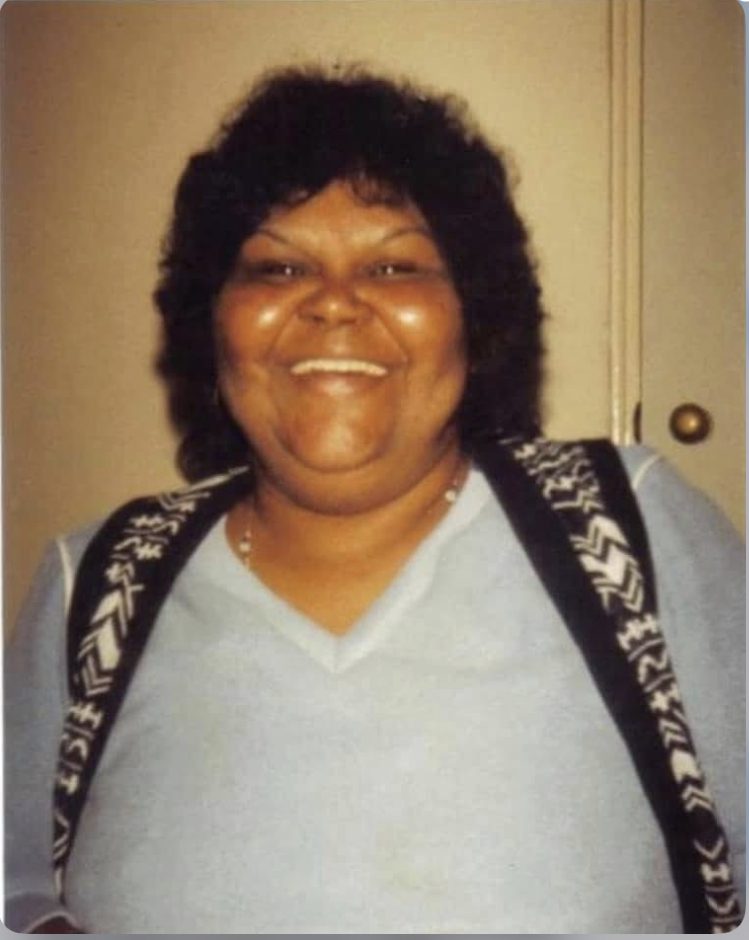Alma Roach

Alma Roach, born on the 5th of November 1942 and passing on the 5th of April 2003, was a beacon of strength and love.
Affectionately called Alma, Alley Cat, or Alma Babe, she was a mother to six children and a mother figure to countless others in her community. Her life was shaped by resilience and perseverance, but also by the deep pain and injustice experienced by so many Aboriginal people of her generation. Alma’s life was intimately tied to the legacy of the Stolen Generations.
She, along with most of her children, were acknowledged as part of this devastating chapter in Australia’s history—a legacy of trauma, displacement, and cultural erasure that left profound scars on families and communities.
As a young girl, Alma was forcibly removed from her family and culture. She spent much of her early life in institutions and hostels, far from the care and love of her kin.
She was made to work as a maid and, at times, faced homelessness. These were dark and lonely years, yet she held onto a strength that would carry her through.
Alma was among the fortunate few who eventually reconnected with family, regaining pieces of her identity and culture that had been taken from her. This reconnection was a source of deep healing and strength.
In her early years of reconnection, Alma made a life in Fitzroy and would often gather with others at Cleve Gardens in St Kilda. This park became her sanctuary. Known affectionately as her “big backyard,” Cleve Gardens was more than just a space—it was where she felt free, grounded, and connected. It was a place of healing, community, and belonging.
The park was where mob came together—sharing stories, laughter, and survival. Alma could always be found there, seated proudly on her crate, surrounded by family and friends.
These milk crates, humble and makeshift, were transformed into symbols of togetherness. In a world that offered little in the way of comfort or safety, Alma and others made something of their own—places to yarn, to connect, and to simply be.
The park gave them what society often didn’t: freedom, dignity, and acceptance.
Alma was a matriarch in every sense of the word. She welcomed all with kindness and warmth, especially the young ones doing it tough on the streets. She offered advice, comfort, a feed if she had one to give, and always a loving “babe.” She was a pillar of her community, holding space for those who needed it most.
The park, her big backyard, offered Alma a sense of peace and liberation. It was a space where the racism and exclusion she faced elsewhere fell away. There, under the open sky, surrounded by mob and laughter, she was truly herself—joyful, glowing, and free.
Though Alma endured profound hardship, her life was a powerful testament to love, strength, and community. She rebuilt what had been taken from her—not only for herself, but for those around her.
Her legacy lives on in the park, in the crates, in the memories of her descendants, and in the hearts of all who were touched by her spirit.
Alma Babe will never be forgotten, her spirit continuing to guide and comfort those who remember her, just as she did in life.
Acknowledgement:
This biography was written by Alma’s granddaughter Ebony and her two eldest daughter’s Tracy and Donna Roach in consultation with Her Place Women’s Museum
Commemoration: Aunty Alma’s Seats
Bronze Milk Crate Sculpture by artist Julie Shiels and Bill Perrin Foundry.
Funded by City of Port Phillip Cultural Development Fund and Port Phillip Citizens for Reconciliation.

